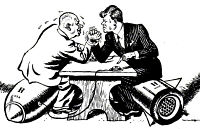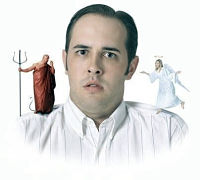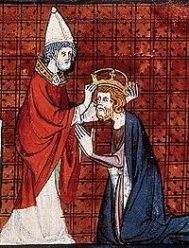Politics
Taming power: ‘generative historical consciousness’. (2016)
Is the capacity for corruption inherent in the nature of power? A mechanism for taming power could be ‘Generative historical consciousness’. David. G. Winter, University of Michigan American Psychologist, Vol...
Written by: Winter, D. G.
Read moreAbsolute power leads to absolute corruption? (It depends) on the concepts of power one holds. (2016)
"...absolute power corrupts absolutely? ...our findings indicated that there is no absolute connection between power and corrupt practice." Fang Wang & Xunwei Sun, Beijing Normal University, China European Journal of...
Written by: Wang, F., & Sun, X.
Read moreWhat makes a Prime Minister great?: A Leadership Trait Analysis of the effectiveness of British Prime Ministers from 1902 to 2004. (2014)
“Leaders projecting strong power motivation are significantly more likely to have their time in office considered effective. Samuel R. Rohrer, Department of Political Science and International Affairs, University of...
Written by: Rohrer, Samuel R.
Read moreInterpersonal power: A review, critique, and research agenda. (2014)
“….only once we understand (how individuals gain power) can we predict who receives power and thus ensure that power is put to good use for organizations, collectives, and countries." Rachel...
Written by: Sturm, R. E., & Antonakis, J.
Read more
Linguistic biomarkers of Hubris syndrome. (2013)
"The researchers ..examined.. the speeches of two UK Prime Ministers said to meet criteria for hubris syndrome (Margaret Thatcher and Tony Blair) and one (John Major) who did not. ...
Written by: Garrard, Rentoumi, Lambert, Owen.
Read moreThe double-edged sword of grandiose narcissism: Implications for successful and unsuccessful leadership among US Presidents. (2013)
Grandiose narcissism is associated with superior overall greatness and several positive measures of performance – but also with negative outcomes, including congressional impeachment resolutions and unethical behaviors. Ashley L. Watts...
Written by: Watts, A. L., Lilienfeld, S. O., Smith, S. F. et al.
Read more
Fearless dominance and the U.S. presidency. Implications of psychopathic personality traits for successful and unsuccessful political leadership. (2012)
"‘Fearless Dominance’, which reflects the boldness associated with psychopathy, was associated with better rated presidential performance, leadership, persuasiveness, crisis management, Congressional relations, and allied variables; By Lilienfeld, Scott O.;...
Written by: Lilienfeld, Waldman, Landfield et al.
Read more
Misrule of experts? The financial crisis as elite debacle. (2012)
"Political and technocratic elites were hubristically detached from the process of financial innovation as it took the form of ‘bricolage’.” This put finance beyond technical control or management. Ewald...
Written by: Engelen, Ertürk et al.
Read more
Psychiatry and politicians: the ‘hubris syndrome’. (2011)
"Lord Owen has provided psychiatrists and other physicians with useful guidance on how to recognise the appearance of hubris syndrome in persons who hold positions of power. He has also provided...
Written by: Russell, Gerald.
Read morePower increases hypocrisy moralizing in reasoning, immorality in behavior. (2010)
“Across five experiments … we found strong evidence that the powerful are more likely to engage in moral hypocrisy than are people who lack power. J. Lammers, D.A. Stapel, Tilburg...
Written by: Lammers, J., Stapel, D. A., & Galinsky, A. D
Read more









